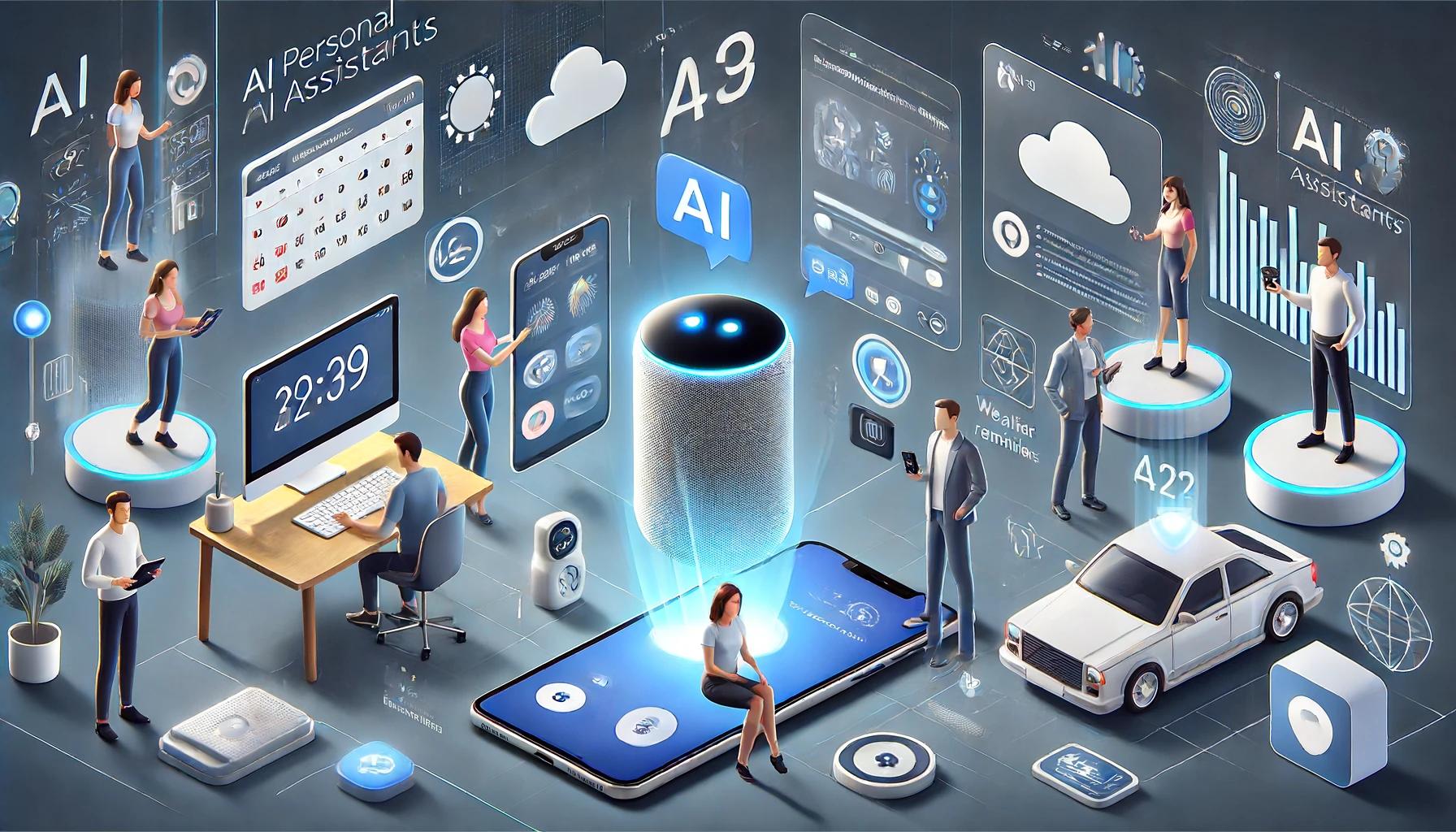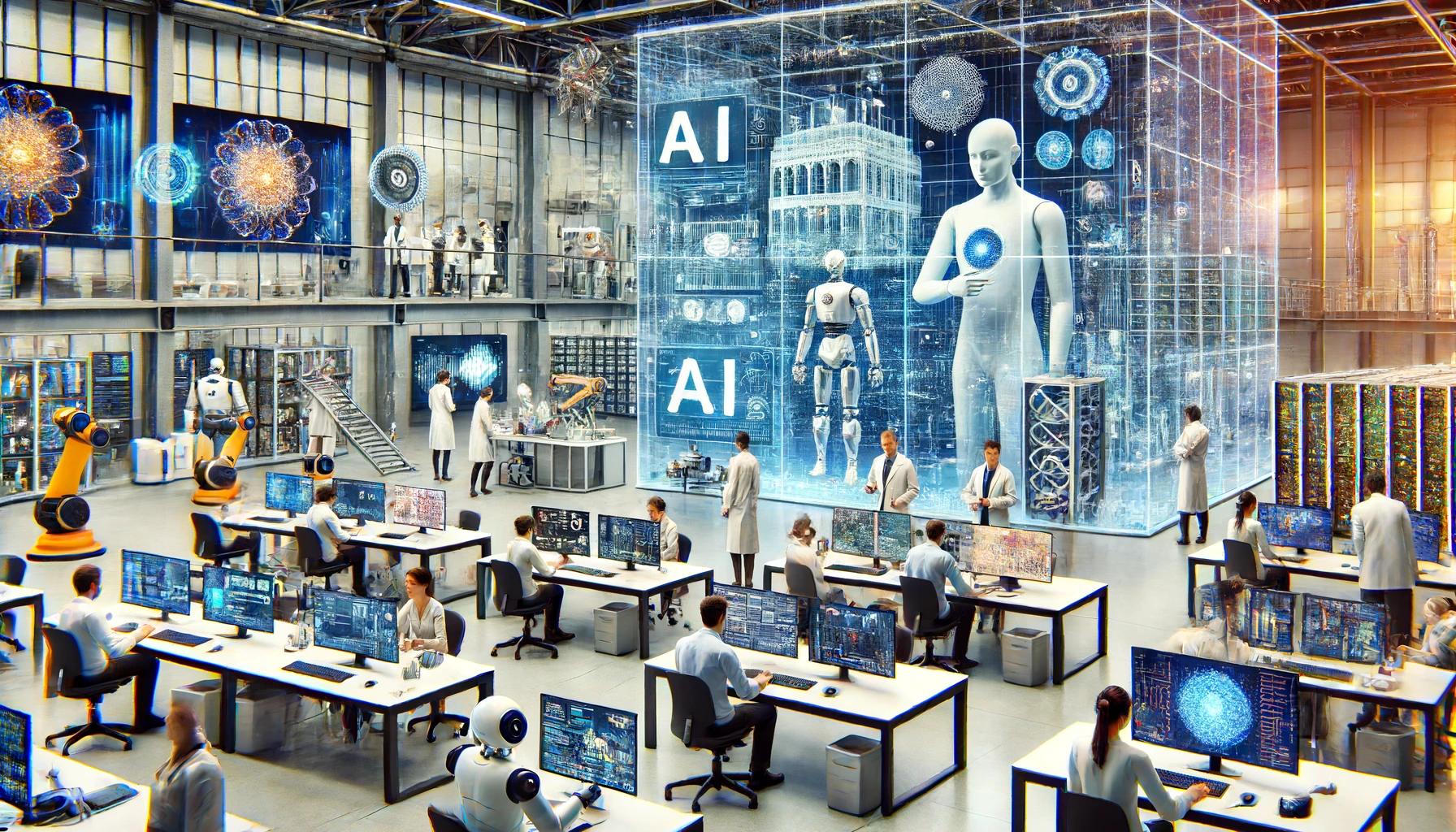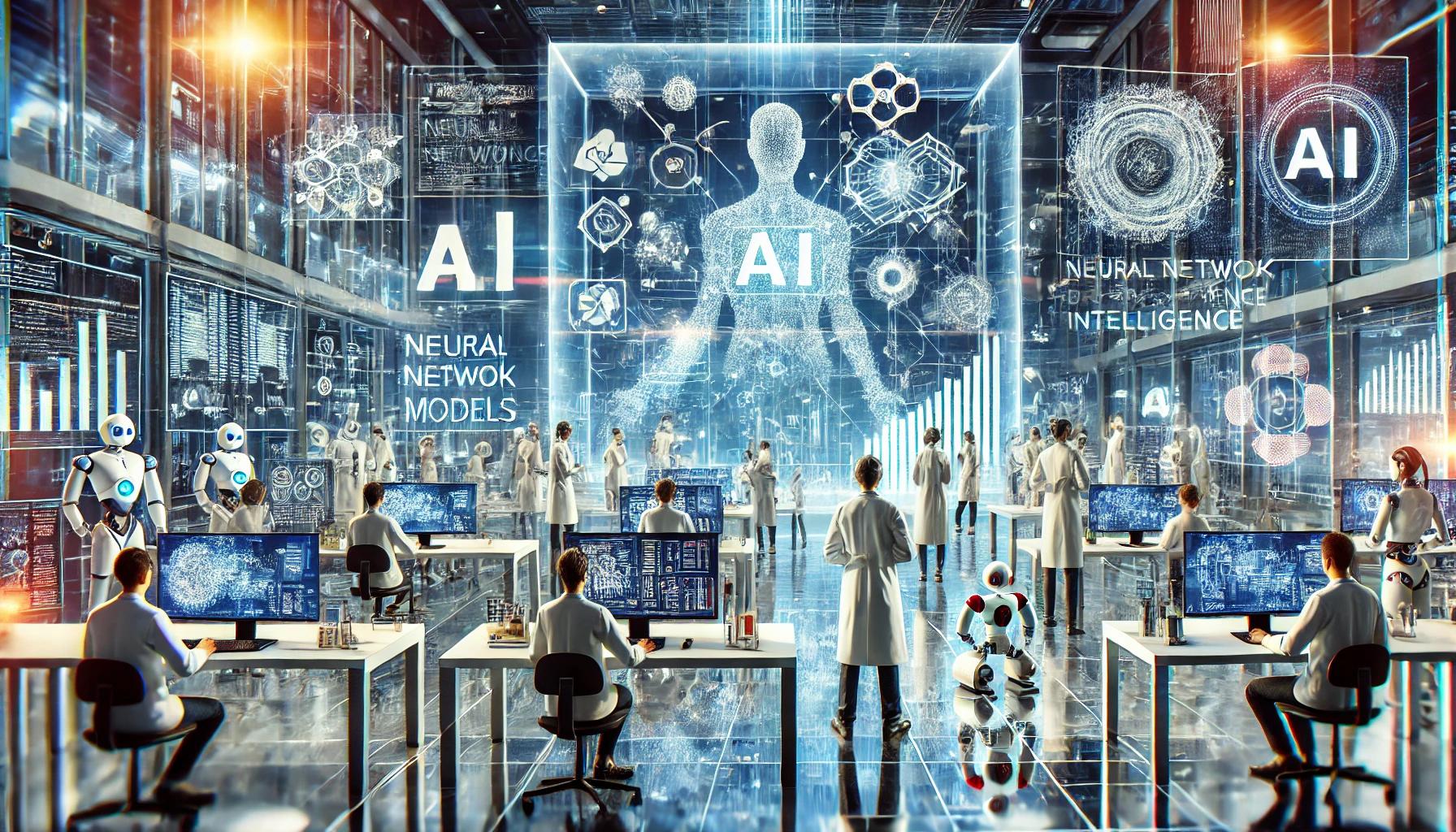- Brief Overview of AI Personal Assistants
- Importance and Relevance in Today’s World
- Thesis Statement
- History and Evolution
- Early Developments in AI and Virtual Assistants
- Key Milestones and Technological Advancements
- Transition from Basic Automation to Intelligent Assistants
- Key Features and Capabilities
- Voice Recognition and Natural Language Processing
- Personalization and Adaptability
- Integration with Smart Home Devices and IoT
- Task Management and Scheduling
- Information Retrieval and Recommendation Systems
- Major AI Personal Assistants in the Market
- Overview of Popular AI Assistants
- Comparison of Features and Functionalities
- Market Share and Consumer Preferences
- Applications in Daily Life
- Home Automation and Control
- Personal Productivity and Organization
- Health and Wellness Monitoring
- Entertainment and Media Consumption
- Education and Learning Support
- Benefits and Advantages
- Convenience and Time-Saving
- Enhanced Productivity and Efficiency
- Improved Accessibility for People with Disabilities
- Personalization and Tailored Experiences
- Challenges and Limitations
- Privacy and Security Concerns
- Dependence on Internet Connectivity
- Accuracy and Reliability Issues
- Ethical Considerations and Potential Biases
Brief Overview of AI Personal Assistants
AI personal assistants are software programs that use artificial intelligence to perform tasks and services for individuals based on commands or questions. These assistants are designed to understand natural language, interpret user intentions, and provide helpful responses or actions. Popular examples include Apple’s Siri, Amazon’s Alexa, Google Assistant, and Microsoft’s Cortana. They have evolved significantly from basic voice command systems to sophisticated tools capable of managing schedules, controlling smart home devices, and providing personalized recommendations.
Importance and Relevance in Today’s World
In today’s fast-paced, technology-driven world, AI personal assistants have become increasingly relevant and essential. They offer a convenient way to manage daily tasks, access information quickly, and enhance productivity. By integrating with various devices and platforms, AI assistants streamline many aspects of life, from setting reminders and sending messages to controlling home appliances and providing entertainment options. This integration not only simplifies daily routines but also makes technology more accessible to a broader audience, including those with disabilities. For example, Google Assistant can help with everything from making calls and sending texts to providing real-time information on weather and traffic.
Thesis Statement
AI personal assistants are transforming various aspects of daily life, enhancing efficiency, and providing personalized support. By leveraging advanced AI technologies, these assistants are becoming indispensable tools in both personal and professional settings, offering significant benefits in terms of convenience, productivity, and user experience. The evolution and impact of AI personal assistants, as highlighted by sources such as TechRepublic and Forbes, underscore their growing importance in modern life.
History and Evolution
Early Developments in AI and Virtual Assistants
The concept of artificial intelligence (AI) has been around since the mid-20th century, with early experiments focusing on creating machines that could mimic human intelligence. One of the first notable developments was the creation of the Turing Test by Alan Turing in 1950, designed to assess a machine’s ability to exhibit intelligent behavior equivalent to, or indistinguishable from, that of a human. The 1960s saw the development of ELIZA, an early natural language processing computer program created by Joseph Weizenbaum, which simulated conversation by using pattern matching and substitution methodology.
Key Milestones and Technological Advancements
Throughout the decades, significant milestones marked the progress of AI and virtual assistants:
- 1980s: The introduction of expert systems, which used AI to emulate the decision-making abilities of a human expert, laid the groundwork for more advanced AI applications.
- 1990s: The rise of the internet and advancements in computing power led to more sophisticated AI research. In 1997, IBM’s Deep Blue defeated world chess champion Garry Kasparov, showcasing the potential of AI.
- 2000s: The launch of Apple’s Siri in 2011 marked a significant milestone. Siri was the first widely-used virtual assistant integrated into a smartphone, utilizing natural language processing to interact with users and perform tasks.
- 2014: Amazon introduced Alexa, its voice-controlled assistant integrated into the Echo smart speaker, revolutionizing home automation and control.
- 2016: Google launched Google Assistant, which combined natural language processing with machine learning to offer personalized assistance and proactive suggestions.
Transition from Basic Automation to Intelligent Assistants
The evolution of AI personal assistants has seen a transition from basic automation tools to highly intelligent systems. Initially, virtual assistants like ELIZA were limited to simple text-based interactions and lacked true understanding or contextual awareness. Over time, advancements in machine learning, natural language processing, and cloud computing have enabled virtual assistants to become more sophisticated and capable.
Modern AI personal assistants, such as Siri, Alexa, and Google Assistant, can understand and process complex queries, learn user preferences, and provide tailored responses. They integrate seamlessly with various devices and services, making them indispensable in managing daily tasks, controlling smart home environments, and accessing information efficiently. The continuous improvement in AI algorithms and the integration of machine learning techniques have transformed these assistants from simple command executors to proactive, context-aware helpers.
Key Features and Capabilities
Voice Recognition and Natural Language Processing
One of the most significant features of AI personal assistants is their ability to recognize and process human speech. Voice recognition technology allows these assistants to understand spoken commands and questions accurately. Natural language processing (NLP) enables them to interpret and respond to queries in a way that feels natural to users. For example, Google Assistant and Amazon Alexa can understand various accents and dialects, making them accessible to a global audience. NLP advancements have also improved context awareness, allowing assistants to understand follow-up questions and maintain coherent conversations.
Personalization and Adaptability
AI personal assistants are designed to learn from user interactions and adapt to individual preferences over time. This personalization capability means they can provide tailored responses and recommendations based on past behavior and user data. For instance, Siri can suggest apps you might want to use based on your daily routine, while Google Assistant can provide personalized news updates and reminders. This adaptability ensures that the assistant becomes more useful and relevant the more it is used.
Integration with Smart Home Devices and IoT
AI personal assistants play a crucial role in the smart home ecosystem by integrating with various Internet of Things (IoT) devices. This integration allows users to control smart home gadgets such as lights, thermostats, security cameras, and appliances through voice commands. Amazon Alexa and Google Assistant are particularly known for their extensive compatibility with a wide range of smart home devices. This capability enhances convenience and automation, enabling users to create routines and control their home environment effortlessly.
Task Management and Scheduling
AI personal assistants excel at managing tasks and schedules, helping users stay organized and productive. They can set reminders, create calendar events, send notifications, and even manage to-do lists. For example, Microsoft’s Cortana can integrate with Outlook to schedule meetings and send reminders. These assistants can also synchronize across multiple devices, ensuring that important tasks and events are accessible wherever you go. This feature is particularly beneficial for professionals and individuals with busy schedules, providing a seamless way to manage their daily activities.
Information Retrieval and Recommendation Systems
AI personal assistants are powerful tools for retrieving information quickly and efficiently. They can answer questions, provide weather updates, deliver news briefings, and even solve mathematical problems. By leveraging vast databases and search engines, assistants like Google Assistant can deliver accurate and timely information on a wide range of topics. Additionally, their recommendation systems can suggest content, products, and services based on user preferences and habits. For instance, Amazon Alexa can recommend music playlists, books, and other products based on previous interactions, enhancing the user experience by offering relevant and personalized suggestions.
Major AI Personal Assistants in the Market
Overview of Popular AI Assistants
Several AI personal assistants dominate the market, each offering unique features and capabilities. The most popular ones include:
- Siri: Developed by Apple, Siri is integrated into all Apple devices, including iPhones, iPads, Macs, and Apple Watches. Siri can perform various tasks, such as sending messages, setting reminders, and providing information.
- Alexa: Created by Amazon, Alexa is embedded in Echo devices and various third-party smart speakers and appliances. Alexa is known for its extensive smart home capabilities and integration with Amazon services.
- Google Assistant: Available on Android devices, Google Home speakers, and various smart devices, Google Assistant excels in information retrieval and integration with Google services like Gmail, Calendar, and Maps.
- Cortana: Developed by Microsoft, Cortana is available on Windows devices and integrates deeply with Microsoft Office and other productivity tools. While its consumer focus has waned, it remains relevant in enterprise environments.
- Bixby: Samsung’s AI assistant, integrated into Samsung smartphones, smart TVs, and other appliances, focuses on device control and contextual understanding.
Comparison of Features and Functionalities
| Feature/Functionality | Siri | Alexa | Google Assistant | Cortana | Bixby |
|---|---|---|---|---|---|
| Voice Recognition | Excellent | Excellent | Excellent | Good | Good |
| Natural Language Processing | Good | Excellent | Excellent | Good | Good |
| Personalization | Good | Good | Excellent | Fair | Good |
| Smart Home Integration | Fair | Excellent | Excellent | Fair | Good |
| Task Management | Good | Good | Excellent | Excellent | Fair |
| Information Retrieval | Good | Good | Excellent | Good | Fair |
| Ecosystem Integration | Excellent (Apple) | Excellent (Amazon) | Excellent (Google) | Excellent (Microsoft) | Excellent (Samsung) |
Market Share and Consumer Preferences
The market share and consumer preferences for AI personal assistants vary based on factors such as device compatibility, ecosystem integration, and specific use cases. According to recent reports:
- Alexa: Amazon Alexa holds a significant market share in the smart speaker market due to its early entry and extensive integration with smart home devices. Alexa is particularly popular in households with multiple smart devices.
- Google Assistant: Google Assistant is highly favored on Android devices and Google Home speakers. Its strong integration with Google services and superior information retrieval capabilities make it a preferred choice for users heavily invested in the Google ecosystem.
- Siri: Siri is the default choice for Apple users due to its seamless integration with iOS and macOS devices. Its market share is bolstered by the widespread use of iPhones and other Apple products.
- Cortana: While Cortana’s presence in the consumer market has diminished, it remains relevant in business environments where integration with Microsoft Office and Windows services is crucial.
- Bixby: Samsung’s Bixby has a niche user base, primarily among Samsung device owners. Its deep integration with Samsung products enhances its appeal within this ecosystem.
Consumer preferences are influenced by factors such as ease of use, compatibility with existing devices, and the range of available features. For example, users who prioritize smart home control may prefer Alexa, while those seeking advanced information retrieval might lean towards Google Assistant. Apple users often stick with Siri due to its integration with other Apple services and devices.
Applications in Daily Life
Home Automation and Control
AI personal assistants play a pivotal role in home automation and control, making everyday life more convenient and efficient. With voice commands, users can control various smart home devices such as lights, thermostats, security systems, and appliances. For instance, Amazon Alexa and Google Assistant allow users to create routines that automate multiple actions with a single command, such as turning off lights, locking doors, and adjusting the thermostat when going to bed. This integration simplifies home management and enhances energy efficiency.
Personal Productivity and Organization
AI personal assistants significantly boost personal productivity and organization by helping users manage their schedules, tasks, and communications. Features like setting reminders, scheduling meetings, sending messages, and managing to-do lists are integral to assistants like Siri, Google Assistant, and Microsoft Cortana. For example, Cortana integrates seamlessly with Microsoft Office, enabling users to organize their workday efficiently by scheduling appointments, setting reminders, and accessing documents quickly.
Health and Wellness Monitoring
AI personal assistants are increasingly used for health and wellness monitoring. They can track fitness activities, remind users to take medications, provide health tips, and even offer guided workouts. Devices like Apple Watch with Siri and Google Fit with Google Assistant help users maintain their health goals by monitoring vital signs and encouraging healthy habits. These assistants can also integrate with third-party health apps to provide a comprehensive overview of one’s health metrics.
Entertainment and Media Consumption
AI personal assistants enhance entertainment and media consumption by providing easy access to music, videos, podcasts, and other media content. Users can ask assistants like Alexa, Siri, and Google Assistant to play their favorite songs, stream movies, or provide recommendations based on their preferences. For example, Alexa can play music from Amazon Music, Spotify, and other streaming services, while Google Assistant can stream videos on YouTube and control media playback on smart TVs.
Education and Learning Support
AI personal assistants are valuable tools for education and learning support, providing students and lifelong learners with access to a wealth of information and resources. They can answer questions, provide definitions, set study reminders, and even help with language learning. For instance, Google Assistant can help students find information quickly, set study schedules, and access educational apps. Additionally, AI assistants can read books, provide educational games, and offer tutoring support, making learning more interactive and accessible.
Benefits and Advantages
Convenience and Time-Saving
AI personal assistants offer unparalleled convenience and time-saving benefits. By automating routine tasks and providing quick access to information, they free up users’ time for more important activities. For instance, setting reminders, sending messages, and controlling smart home devices can all be done with simple voice commands. Google Assistant and Amazon Alexa can handle multiple tasks simultaneously, such as creating shopping lists while checking the weather forecast, making daily routines more streamlined and efficient.
Enhanced Productivity and Efficiency
AI personal assistants significantly enhance productivity and efficiency by helping users manage their schedules, tasks, and communications. Features like calendar management, task reminders, and email notifications ensure that users stay organized and on top of their commitments. Microsoft Cortana integrates seamlessly with Office 365, providing tools for managing meetings, setting deadlines, and accessing important documents, thus optimizing workflow and reducing the chances of missing important tasks.
Improved Accessibility for People with Disabilities
AI personal assistants improve accessibility for people with disabilities by providing voice-activated controls and services that are easy to use. These assistants can perform tasks that might be challenging for individuals with physical or cognitive impairments. For example, Apple’s Siri can read out messages, set reminders, and control smart home devices, making it easier for individuals with visual or motor impairments to navigate their daily lives. Similarly, Amazon Alexa offers features like voice-controlled smart home integration, which can be particularly beneficial for those with limited mobility.
Personalization and Tailored Experiences
AI personal assistants offer personalized and tailored experiences by learning from user interactions and adapting to individual preferences. They can provide customized recommendations, reminders, and content based on the user’s habits and preferences. For instance, Google Assistant can suggest activities, routes, and even restaurants based on previous interactions and location data. This level of personalization ensures that the assistant becomes more intuitive and relevant over time, enhancing user satisfaction and engagement.
Challenges and Limitations
Privacy and Security Concerns
One of the primary challenges associated with AI personal assistants is privacy and security. These assistants often require access to personal data, such as location, contacts, and usage patterns, to function effectively. This data collection raises concerns about how the information is stored, used, and protected. For example, incidents where Amazon Alexa has inadvertently recorded conversations have highlighted potential privacy risks. Users must trust that companies will handle their data responsibly and implement robust security measures to prevent unauthorized access and breaches.
Dependence on Internet Connectivity
AI personal assistants rely heavily on internet connectivity to perform many of their functions. Without a stable internet connection, their capabilities are significantly limited. For instance, Google Assistant and Amazon Alexa need to connect to cloud services to process voice commands and retrieve information. This dependence on connectivity can be a drawback in areas with poor internet coverage or during network outages, rendering the assistants less effective or entirely unusable in such scenarios.
Accuracy and Reliability Issues
While AI personal assistants have made significant strides in understanding and processing natural language, they are not infallible. Issues with accuracy and reliability can arise, especially with complex or ambiguous commands. Misinterpretations of voice commands can lead to incorrect responses or actions. For example, Siri might misunderstand a user’s request, leading to frustration and repeated attempts to get the desired response. Continuous improvements in natural language processing and machine learning are needed to enhance the accuracy and reliability of these assistants.
Ethical Considerations and Potential Biases
AI personal assistants raise several ethical considerations, particularly regarding potential biases in their algorithms. These biases can stem from the data used to train the AI models, which might reflect existing societal prejudices. For instance, if the training data lacks diversity, the assistant’s responses may inadvertently favor certain demographics over others. Companies like Google and Amazon are working to address these issues by refining their algorithms and ensuring more inclusive data sets. Nonetheless, ongoing vigilance is necessary to identify and mitigate biases, ensuring fair and equitable treatment for all users.





